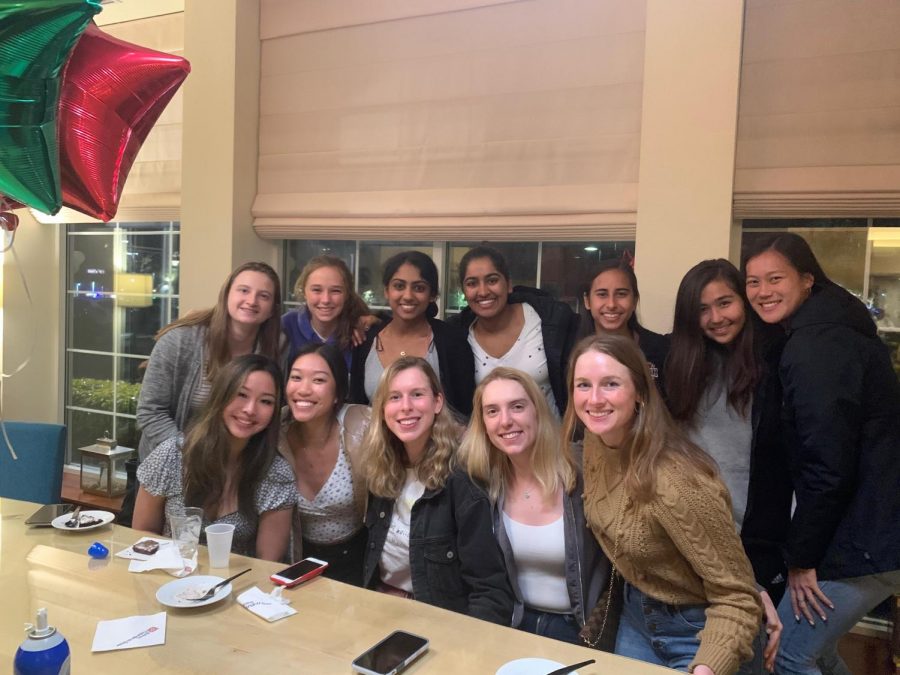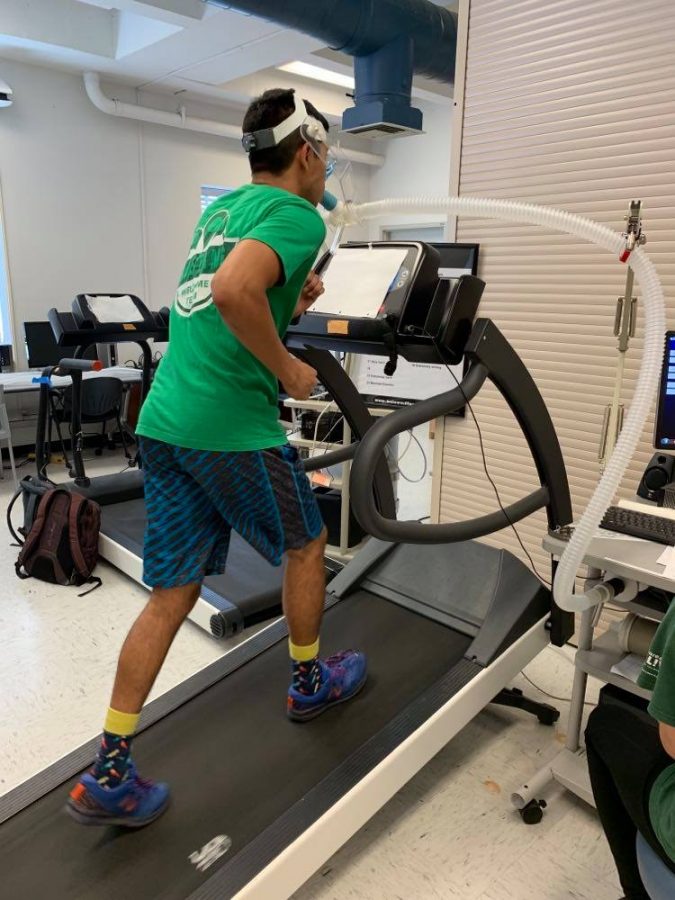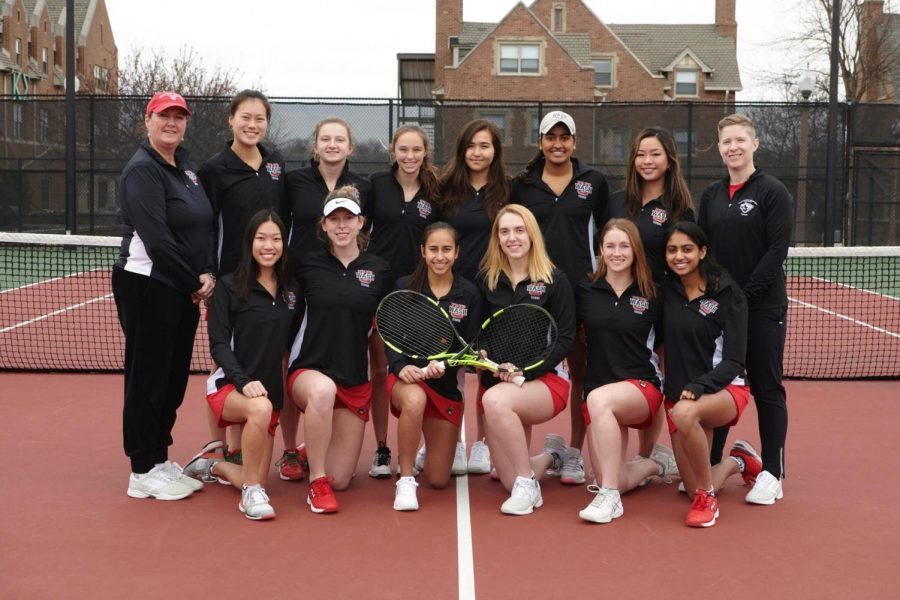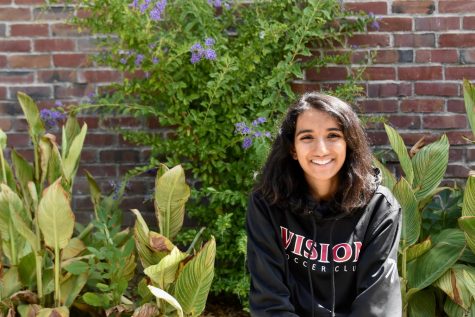COVID-19’s impact on college life
Exploring the impacts of online learning on college students and their college experience
April 6, 2020
In response to the spread of COVID-19 (coronavirus), thousands of colleges across the United States and various other countries moved to online learning for the remainder of the school year to help prevent the further spread of the virus and keep students and teachers safe. Many colleges and universities, such as Stanford University, were forced to make their finals optional or delayed because the change came just a week before finals began. Other schools, such as Cal Poly San Luis Obispo, switched to online finals. For schools on the semester system, many were forced to make similar accommodations to midterms. Schools are also using a variety of platforms and combinations of platforms to conduct online learning: many use Zoom, but other platforms include Nectir, Cengage, GradeScope, Canvas, online videos and more.
Academic Challenges
For MVHS alumni and Stanford University freshman Brandon Ma, the transition to online classes happened in the last week of his winter quarter. Ma explains that online learning was initially exciting for students, as they no longer had to take finals and could now take a longer spring break. However, this excitement quickly faded when students realized online learning would continue for the rest of the year. On the other hand, MVHS alumni and Cal Poly San Luis Obispo senior Chatty Adiga took all of his winter quarter finals online. Although Adiga is comfortable learning online, he explained that Cal Poly announced the transition to online learning only a few days before finals, which made it difficult for students to effectively prepare.
Akin to Adiga, MVHS alumni and University of Washington at St. Louis (WashU) freshman Leslie Ligier took her finals online. Although she understands why virtual classes are necessary in this situation, Ligier finds studying at home less effective and less satisfying.
“For some reason I feel like it’s not really worth it to [be learning] alone,” Ligier said. “When you go to college, you realize how much group work really means to you and is important to you. I just feel so unfocused at home, compared to college where you have people that are constantly pushing you to study or you study in groups most of the time.”
Ligier explains that although she believed that classwork would get easier, she quickly realized that she could no longer work with others or visit office hours and now had to take more difficult, albeit open-note, exams.
In his experiences with online learning, Ma explains that the content, pacing and difficulty of the classwork have not been altered. However, he agrees with Ligier that learning loses some of its value when conducted online.
“I think it’s a lot harder to interact with your professor as well,” Ma said. “Usually, you can meet up for office hours or you can even ask to meet up with them [privately], get a coffee and just talk about the course subjects if you want. Most professors are very open, and I feel like the fact that we can’t do that in person makes it a lot harder to build a good relationship with people in your class and also the people teaching.”
Although he too understands why virtual classes are necessary in the circumstances, Ma explains that online learning makes the learning experience feel slightly less authentic.
“It basically makes people feel like they’re attending Khan Academy,” Ma said. “It’s like why am I paying this much money to learn from Khan Academy? You see a lot of memes like on the Stanford meme page about that. I think they’re humorous, but also there’s a bit of truth to them where people feel like, ‘This isn’t what I signed up for.’”
Just as students have been struggling to adapt to online learning, so have professors. One of Ma’s teachers, Dr. Yuna Blajer de la Garza, explains that teachers had to quickly adjust to this new system. Garza teaches philosophy and political theory, classes that mostly rely on lectures and discussion, and were therefore “relatively easy” to move online. Garza explains that she was worried about making presentations accessible to students without WiFi and had to record the lectures from Stanford because her home Internet was too slow. Despite this, she believes that her students have done a great job adapting to the circumstances.
“It was the last week of classes of the quarter,” Garza said. “Students were asked to move out of the dorms very quickly, and everyone was distraught at the news. The quick change was very disruptive to students and it was understandable that they were struggling. In general however, I would guess that it is harder for students to stay engaged and interested, but I also had a fabulous group of students who made the best of a difficult situation.”
DIFFERENCES BETWEEN MAJORS
Although online learning impacts all college students, the impacts sometimes differ based on major. For example, senior Chatty Adiga explains that while certain classes can be converted to online classes easily, others are harder to replace with online learning.
“I think there are some classes that can be taught online,” Adiga said. “But especially as someone who has taken majority STEM classes throughout my college experience, I find it really difficult to replace a lot of the stuff that we do in person. For example, a class that I’ve taken is electrocardiography. And part of the class is can you set up the leads on someone and be able to get the right information from the test […]. That sort of information is hard to get if you’re just doing it online.”
Similarly, Ma explains that at Stanford, classes that require complex problem solving are impacted the most. For example, Ma regularly worked through his economics problem sets with a professor during office hours. Although this is still doable with the share screen feature on Zoom, Ma says it is less convenient. He also explains that the curriculum and structure of different classes make a big difference in how easily it can be converted online.
“Most people don’t go to the CS lectures,” Ma said. “They only watch the recordings […], so I think for CS it’s not a huge deal. A lot of the classes I’m taking are more humanities, like [Political Science] or [Economics]. I think those are going to be more affected because not having any class discussions takes out a large part of what the class is supposed to be about.“
Garza expresses a similar sentiment. Although she appreciates the availability of online learning in this health crisis, she stresses the fact that in-person and online learning are “[not] perfect substitutes of one another.”
“Teaching online is a different beast than teaching in person,” Garza said. “While in-person we rely on seeing and hearing the reactions of students to the content we are presenting, we barely get any feedback while teaching online. […] If, say, you tell a joke or explain a complicated concept, you hear neither laughter nor any sounds that signal agreement or understanding … I cannot see students nod or frown. So, it is difficult to ‘read your audience,’ which is very off-putting at first.”
SPORTS
Besides the academic system, coronavirus has also dramatically impacted college athletics. Ligier plays for the WashU women’s tennis team. Her season, which typically runs from winter quarter to spring quarter, ended when they were only about a quarter into the season. Ligier explains that the abrupt end to the season was especially disappointing for her and her teammates because the team had improved considerably from last year and were excited about their performance this season.
“The seniors put in so much work into our team for the past four years,” Ligier said. “To hear that announcement come from our coach and seeing the seniors cry was so emotional. […] We’ve worked really hard. We commit 15 or more hours a week just playing tennis together and doing weight training together. And doing that instead of being social with our friends or going out, we sacrifice a lot. To see it being taken away from us is really sad.”
While at college, the girls had weight training together three times a week, in addition to their regular practices. Ligier explains that a strict schedule and working out with a team made her “the fittest [she’s] ever been” at WashU. Ligier remembers how difficult it was to transition from off-season training to on-season practice, and she knows the transition from little to no training right now to off-season training in the fall is going to be even more difficult.
“That transition from playing maybe 10 hours a week to 15 hours a week was a lot for me,” Ligier said. “We went from zero to 100 in terms of footwork and weight training, and the entirety of a month I was just completely tired and sore every single day. So I think going back is going to be really, really tough on my body if I don’t workout.”
Even beyond training and working out, Ligier misses hanging out and playing with her team.
“For our team right now, we’re literally facetiming every other day,” Ligier said. “We miss each other so much. It’s really sad, but at least we’re seeing each other.”
SENIORS
Aside from athletics, many seniors’ post-college plans have been negatively impacted by COVID-19. Adiga explains that many companies are closed or not hiring due to the pandemic, which makes it harder for some of his senior friends to find employment opportunities.
Personally, Adiga plans on attending graduate school, but his graduate school interviews are also impacted by COVID-19.
“All my interviews are online now, and something that my [college] program particularly harps on is going in [to the campus to] do your interview, meeting with faculty, meeting with students there.” Adiga said. “We really miss out on the opportunity to go and do that because an online interview cannot replace seeing the campus, seeing everything in person, actually meeting these people.”
MVHS alumni and United States Military Academy West Point senior Peter Kim explains that although job and grad school prospects may be affected, the switch to online learning matters less to him now than it might have if he wasn’t a senior.
“Frankly, it doesn’t really matter to me,” Kim said. “I’m in my last semester, so my classes are either capstones or thesis classes. A lot of them are my final step so, for me, it’s more about finishing up and getting out of there.”
Because Kim attends West Point, a military school, all of his friends are guaranteed jobs in the U.S. army after college. To him and his friends, the biggest downside of online learning is missing graduation.
“[The impacts of COVID-19 on an education is worse for seniors as opposed to other kids in college] because of graduation and [it being] your last semester there with friends,” Kim said. “For a lot of people, you’re gonna be done with college for a little bit at least.”
Although Adiga himself won’t miss graduation, he understands how upset certain seniors are, and he hopes that colleges can find a way to still hold a graduation, whether it be by postponing it to the summer or taking necessary safety precautions.
“I mean, personally, graduation takes way too long,” Adiga said. “It’s usually too hot, especially in California. So I was not planning on attending mine, but I know a lot of students and friends really wanted to be there. You know, to walk up, get their diploma and then celebrate with their family. So I know a lot of people are really devastated about missing out on that experience.”
SOCIAL ASPECT
Despite the fact that Ma, Ligier, Kim and Adiga are all in different years in college, pursuing different majors and engaging in different extracurriculars, they all agree that the worst part of the transition to online learning is missing out on experiences with their friends.
As a senior, Adiga took several classes specifically so he could take them with friends, and online classes take away a large part of this experience. Kim, who got the news while he was in Cupertino for spring break, never got to say a proper goodbye to his friends. And while Ma and Ligier are only freshmen, they express similar sentiments about missing their college friends.
Ma explains that although his college friends try their best to stay in touch, they are far less active online than Ma’s high school friends, which makes it difficult to stay in touch consistently.
“As soon as people got the announcement that school is going to be online and finals are going to be optional or delayed, most people bailed as soon as possible.” Ma said. “We got the announcement on Thursday, and I think by Friday and Saturday some of my friends had already gone back to Nevada or New York. It was really rushed. I don’t think a lot of us had time to say a proper goodbye because we were all trying to schedule our own things.”
Ligier agrees with Brandon, explaining that because college friends come from all different areas of the country, it’s difficult to stay in touch. She says she misses “all the small [things]” the most, like studying with her friends, going to parties and dancing or hanging out on weekends.
“I’m gonna miss my friends so much,” Ligier said. “When I was a senior in high school, I was like, ‘Well, I’m not ready for college. I love all my friends here’ [….] But in college, the amount of freedom you have is insane. My friends would just come over to my dorm and we would talk until 4 a.m. or we would cook together. We would just hang out together all the time … and I really took that for granted. I didn’t realize how important that was to me until I came back home — being that accessible to my friends was so nice.”






























